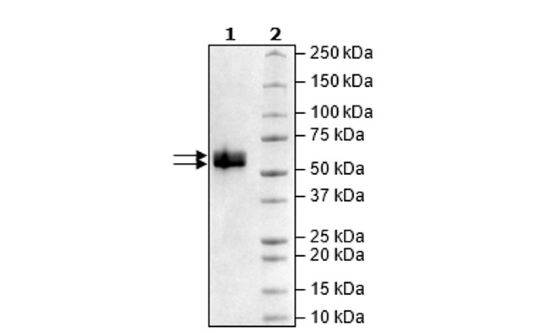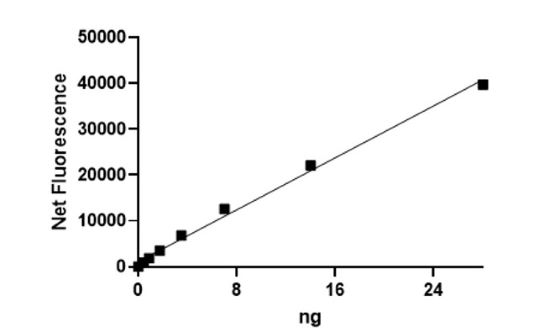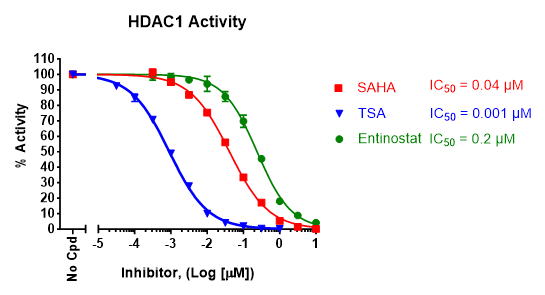HDAC1, FLAG-Tag, His-Tag Recombinant
Human recombinant HDAC1 (Histone deacetylase 1), full length, encompassing amino acids 1-482(end). This construct contains a C-terminal His-tag (6xHis) followed by a FLAG-tag. This recombinant protein was affinity purified as a complex with endogenous tubulin.
This product has been cited 177 times.
≥90%
Aqueous buffer solution.
40 mM Tris-HCl, pH 8.0, 110 mM NaCl, 2.2 mM KCl, 100 ng/µl FLAG peptide, and 20% Glycerol
460 pmol/min/µg.
HDAC1, or histone deacetylate 1, is a Class I member of the histone deacetylase family which is involved in lysine deacetylation. Lysine acetylation/deacetylation is a dynamic process involved in the regulation of a variety of cellular functions, similarly to phosphorylation/dephosphorylation. HDAC1 is part of the histone deacetylase complex, localized in the nucleus, and regulates eukaryotic gene expression. It can also directly interact with different transcription factors to regulate specific pathways, for example: HDAC1 interacts with MTA-2 (metastasis-associated protein-2) to deacetylate p53 and thus participates in cell growth and apoptosis regulation. In endothelial cells HDAC regulates angiogenesis, inflammation, redox and nitric oxide signaling, in response to environmental stimuli. Dysfunction of HDAC1 can contribute to atherosclerosis. Mutations in HDAC1 can result in cancer, via the deregulation of genes involved in cell proliferation and survival. A number of HDAC inhibitors have been approved for the treatment of cancer, but most are non-selective. Entinostat (or MS-275) is an inhibitor that acts preferentially on HDAC1 and has shown promising results in phase I clinical trials for refractory solid tumors and lymphoma. The development of new inhibitors specifically targeting HDAC1 may open newer avenues for cancer and HDAC1-linked diseases in the endothelium.




